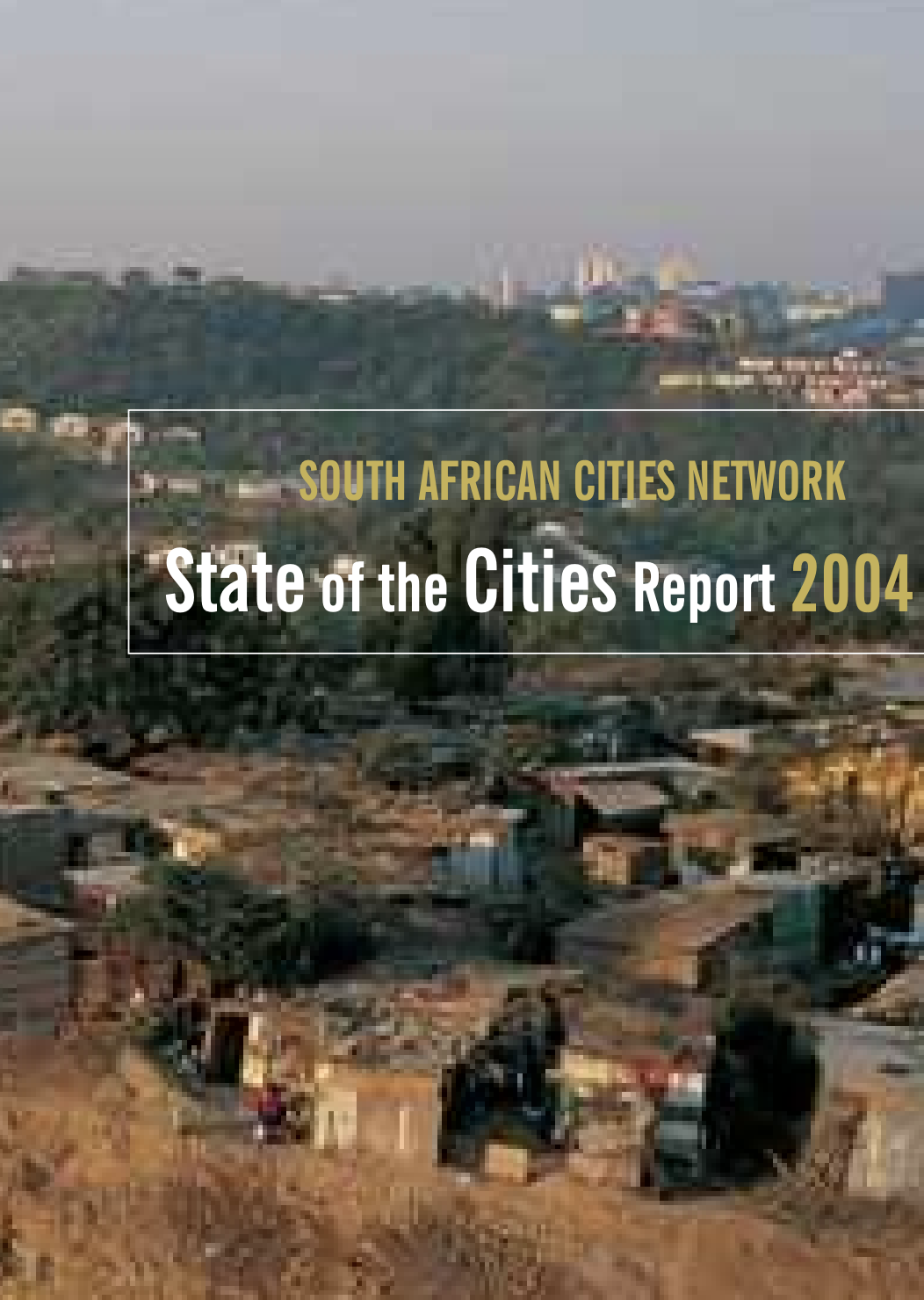State of South African Cities Report
2004 Report

This is the first report to be issued by the SACN on the ‘State of South African Cities’. The report takes a hard look at the forces that have transformed the country’s largest cities over the decade since 1994 and asks, if the current trends continue, whether cities can expect positive or negative things in the years to come. As part of the process of celebrating 10 years of democracy, the Office of the President has led a ‘Ten Year Review’ to assess what has been achieved over the last decade, and to define the strategic challenges for the future. Substantial preliminary research and thinking was released in October 2003 in the publication Towards a Ten Year Review.
This document invited other stakeholders, including other spheres of government, civil society, trade unions, universities, and the private sector, to contribute their own sector reviews during the course of 2004. It is envisaged that together these assessments will “help inform the nation’s evaluation of itself in the First Decade of Freedom”. This State of South African Cities Report is the South African Cities Network’s contribution to the Ten Year Review. The report does three things. First, it tries to read which way the winds of city change are blowing. The report consolidates available data from many sources into a ‘statistical almanac’ covering the nine SACN cities. Using this data it describes and analyses key trends currently affecting these centres. It looks at how these trends are likely to evolve over time and considers what strategic challenges and opportunities they are likely to bring. Second, the report assesses how city stakeholders are responding to these winds of change and acknowledges the important efforts that city leaders and decision makers are already making. Third, the report discusses the implications of current trends and responses for the future of South African cities.
The report speculates on how various trends may unfold, and what the likely medium to longer-term outcome of these may be. Through description and analysis of trends it hopes to set up a strategic agenda for further research, planning and action that will decisively improve the future prospects of life in South African cities. This report makes a distinction between ‘municipalities’ and ‘cities’. While it refers to the cities by means of the municipalities’ names, it is not only about municipal concerns. When it describes what is going on in ‘Msunduzi’, ‘Nelson Mandela’ or ‘Tshwane’ this report therefore refers not only to things happening inside council offices, but also to broader urban developments and dynamics that municipalities have traditionally not been solely, or even directly, responsible for. The best example of this is development in the urban economy. The report is also not only for municipal councillors and officials. It certainly addresses municipalities. But it also speaks to other entities responsible, in one way or another, for city development, including national and provincial government, business, communities, and a wide variety of civil society structures.



Comments